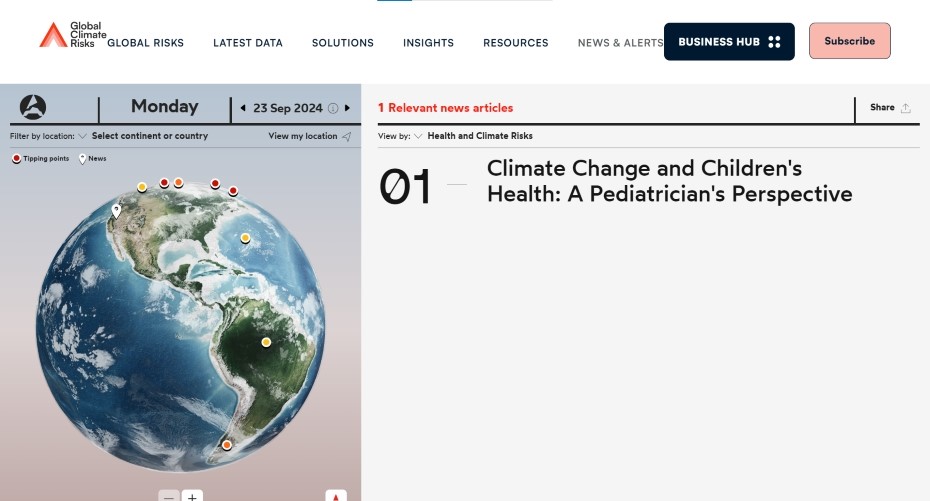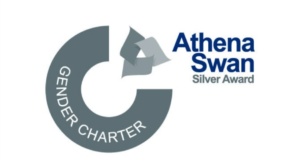AI-powered tool that monitors global climate risks expanded to include health impacts

Climate Risks Daily, an AI-powered tool developed to highlight the scale of climate impacts from extreme weather globally, now allows users to focus on the health impacts of climate change.
The groundbreaking tool was developed by Arctic Basecamp, a leading not-for-profit authority on risks associated with climate change, founded by the University of Exeter Business School’s Professor Gail Whiteman – and Ode (the data and design agency that is a partner in US Vice President Al Gore’s Climate TRACE initiative).
The tool provides real-time information on global climate risks and operates by consolidating global news stories related to extreme weather events and climate impacts felt in the polar regions.
The new Health & Climate Risks “layer” expands the breadth of topics covered to highlight the health risks exacerbated by climate change.
Professor Gail Whiteman, Founder and Executive Director at Arctic Basecamp and Professor of Sustainability at the University of Exeter Business School, said: “Global leaders can use this tool to monitor real-time global risks from extreme weather, and now health, to aid informed decision making and risk planning. But importantly the public can also see the sheer scale of climate impacts affecting where they live, giving power back to people living through climate impacts every day.”
Health policymakers, businesses and organisations can use this new layer to build resilience into healthcare systems and take more effective action to mitigate the health impacts of climate change.
Climate Risks Daily now operates in three distinct modes: two consolidating global news stories specifically related to extreme weather events and health, provide users with up-to-the-minute insights into the scale of climate-related incidents worldwide.
A third highlights news stories relating to polar issues, the biggest amplifier of climate change effects globally.
All modes include content translated from 100 languages into English using advanced AI language translation capabilities.
The tool aligns with the objective of a new research project conducted jointly by the University of Exeter, Arctic Basecamp and the World Economic Forum and funded by a grant from the Wellcome Trust, looking at the effects of polar climate change on global health and healthcare by building new impact assessment tools/integrated assessment models.
The “Effects of Polar Climate Change on Global Health and Healthcare” project aims to highlight the under-reported risks posed by polar tipping points to global health and the healthcare sector, and will enrich existing climate health analyses to support effective resilient strategies from the most vulnerable regions by taking into account the impact of polar tipping points.
Professor Whiteman added: “With nine of the 16 global climate tipping points located in the polar regions and five expected to be crossed before 2C of warming, understanding the polar regions’ effects on global health and healthcare systems is crucial. While a large body of research has focused on linking climate change to health impacts, a systematic analysis of how rapid polar change magnifies these health impacts remains absent. This project addresses this gap.”
The Wellcome Trust project commenced earlier this year and will run for a period of three years.
Climate Risks Daily is available on the web as a stand-alone tool at https://ai.globalclimaterisks.org/ and also on https://globalclimaterisks.org (Arctic Basecamp’s flagship platform focusing on climate risks driven by rapid polar warming).



